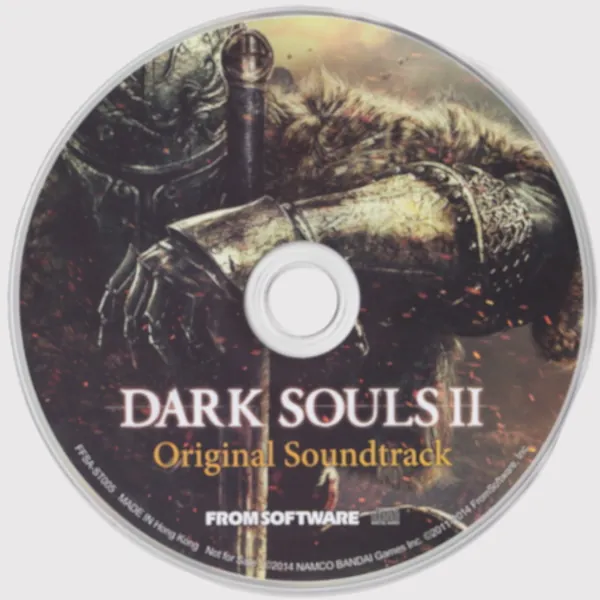I thought my relationship with Dark Souls II ended when I beat the game. I thank RPGFan Music’s headmaster for the recurring nightmare.
Hearing the soundtrack to the nightmare, however, wasn’t as painful as it had been for the original Dark Souls. The music isn’t as evocative or memorable. While playing the game, I never paused to admire the soundtrack, perhaps because I was so focused on the horror and the difficulty, but also because the music never struck me. It never surprised me. I only remember a few furtive piano notes and the abrasive bellowing of a boss theme on the other side of a door of fog. Everything else has fallen away.
The Souls series uses music and sound effectively, and that often means silence. The few peaceful areas in the game are given quiet, pensive background pieces, and most of the remaining tracks are reserved for bosses. As with the original Dark Souls, many of them are almost indistinguishable to my ears, which translate bass horns, booming drums, and obscure vocals to “boss music,” which is only slightly more ordered than noise. In game, this is an effective, if wayworn, technique. The assault of sound at the beginning of a boss battle perfectly accompanies the first sight you have of some terrifying being: the towering gangly giant, the sinner in the darkness, or the gargoyle coming to life in the moonlight.
But like the bosses themselves, their respective tracks aren’t particularly memorable. A few take different approaches, like “The Pursuer,” with its driving rhythm that seems to chase you through the shadows. The harpsichord in “Dragonrider” is a lovely touch. “Belfry Gargoyles” sounds familiar, one of the only tracks that elicits a strong emotional reaction. “Looking Glass Night,” both the boss and the music, exemplify the Souls tradition. And “Nashandra,” the final boss, features more dynamic vocals than most of the other themes, although the song itself isn’t particularly dynamic.
Most of the songs are only one or two minutes long, which works to their advantage—any longer and they would be, perhaps, unbearable—but they end with fade-outs due to their being looped in game. This lends the album a somewhat incomplete, rushed feel that doesn’t complement the homogeneous nature of the songs.
Even the credits track, “Longing,” meant to provide some sense of catharsis, feels ordinary. I’ve heard this song before in similar, if not identical, context.
Dark Souls II Original Soundtrack is less memorable and impressive compared to the original game’s. In that way, the soundtrack mirrors the relationship between the games themselves. Still, Dark Souls II is a force of nature and while the soundtrack isn’t necessarily pleasant, there’s something to be said for its relentless darkness, its ceaseless discharge of grave and unsettling sounds.




